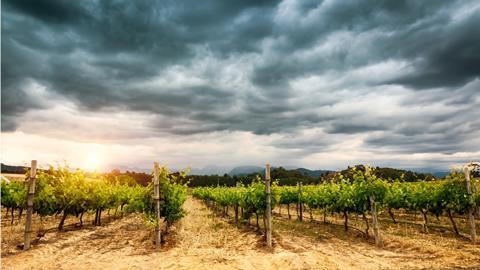
Since democracy in 1994, the South African fruit sector has had to deal with some major challenges. While it has tackled these with flying colours, the biggest obstacle may still lie ahead as the emotive land debate has the potential to create both uncertainty and instability.
The fruit industry has truly found its feet in the post-regulation era and, in dealing with ever-tougher entry conditions in its major markets, it has shown remarkable resilience. During the past ten years all sectors of the industry have shown considerable growth, and new cultivars have strengthened the South African offer across the board.
Today the fruit sector represents an export value of more than R25 billion (£1.5bn). Despite little, or at least heavily reduced, support from government, growers have taken matters into their own hands. Many have integrated themselves in marketing and logistics, establishing international structures to handle their products from the farm to their customers.
Political changes and emotional rhetoric have also introduced new challenges to the sector, which will test this resilience even further. While the demand for ‘land expropriation without compensation’ and steps leading from the recent vote in Parliament to introduce this radical concept in South Africa still have a long road ahead, it could create uncertainty which will affect future investment.
It is likely that as the implications of these sorts of steps for the country’s economy become clear, we will see new thinking coming forward. This debate will feature very strongly until next year’s national elections as President Ramaphosa tries to bring black voters back to the ANC, and in doing so, outfox the more radical Julius Malema. However, he will also have to show South Africans that he has taken government corruption in hand, or else he may well lose voters to the main opposition.
It is very likely that the leading growers of the country will take things in their stride and engage with the government to demonstrate that they have better solutions to resolve land ownership issues. They are committed to the industry and the economic future of the country and have demonstrated this through rapid growth, increasing employment and earning foreign currency that is reinvested in the rural communities. This is something the government can simply not do without and it will need a successful fruit sector to achieve economic prosperity in the rural regions.
Another potential challenge that fruit growers will have to overcome in the short and medium term is how the country’s scarce water resources will be divided between urban use and agriculture. There are likely to be new controls and restrictions on water use, even from the reservoirs built by growers on their own farms and from underground sources. In the past, with the dams supplying the cities always more or less full, this was never a point of discussion. It is certain now though that water will increasingly become the major issue.
There is every indication that the growth of the fruit sector, and especially the table grape and citrus sectors, will continue in future. The export of citrus fruit is likely to reach 160m cartons by 2025, representing growth of 31 per cent in just seven years. If water is not going to be a major issue, the table grape sector will also continue fairly strong growth as well, as will topfruit and stonefruit, keeping the country at the forefront of the international fruit business.



